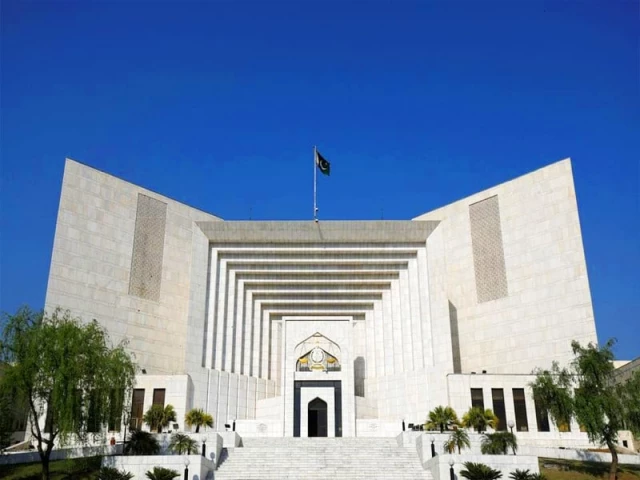Legal fraternity warns FCC plan will shatter judicial independence and hand total control to executive
ISLAMABAD:
The proposed 27th constitutional amendment is widely seen as a blow to the independence of the judiciary, with critics warning that the Supreme Court cannot be split in two or placed under the thumb of the Federal Constitutional Court (FCC), whose first chief justice would be appointed by the executive branch.
A former Attorney General of Pakistan observed that the FCC “could not have been established in the manner proposed”, warning that such a move would open Pandora’s box for the country’s constitutional framework.
He noted that the Prime Minister would have the power to choose any SC judge as the chief judge of the FCC.
He warned that transferring High Court judges without their consent would give rise to gross abuse and could be used to target independent-minded judges.
He added that if a senior SC judge refused to serve under a junior judge appointed as FCC chief judge, he would be considered retired as an SC judge. He said this forced mid-career transfer to a dubious court represented a serious erosion of judicial independence.
Legal observers warn that the highest court – currently the nation’s supreme judicial body – would effectively be subordinate to the FCC, whose legitimacy would remain in question for multiple reasons.
One of them is whether the current parliament truly reflects the will of the people.
During the hearings on the 26th Amendment case, lawyer Akram Sheikh had told the Constitutional Court that the amendment was “brought in just to avoid accountability for the February 8 general elections”.
Other concerns include the reserved seats case, in which the government secured a two-thirds majority in the National Assembly following the ruling, and the continued delay in hearing challenges to the 26th Amendment over the past year.
Reports suggest that four potential candidates are being considered for the position of FCC Chief Justice: Chief Justice Yahya Afridi, Justice Aminuddin Khan, Justice Jamal Khan Mandokhail and Justice Muhammad Ali Mazhar.
Lawyer Abdul Moiz Jaferii described the move as “an illegitimate government altering our social contract to allow its continued seizure of power.”
“This time it’s even more shameless, because the judges they want to bury are already weakened. So there is no need to pretend.”
Jaferii further noted that “the changes to Section 243 are frankly just embarrassing. We have moved from a participatory democracy to the level of Idi Amin and Kim Jong Un, where our constitution now describes particular individuals as heroes and then grants them special privileges.”
“This amendment is the textual representation of how North Koreans greet their dear leader every time he goes on a trip. Some fall screaming in love, others run into the water after his ship.”
Lawyer Sameer Khosa said that by creating the FCC, “extending the age of its judges to 68, allowing the prime minister to choose his first chief justice, and then allowing that chief justice to choose the rest of his court, the 27th Amendment is a clear attempt to destroy an independent judiciary by filling a court with hand-picked and privileged judges.”
He added that “by authorizing the transfer of judges without their consent, it appears that there is a desire to purge the judicial system of unwanted judges.”
Khosa emphasized that “an independent judiciary is not for judges or lawyers, but for the people of Pakistan to have a place to go when power oppresses. Those who exchange the independence of the judiciary for their buildings, extensions, posts or offices will have betrayed not only their institution, but the people.”
Lawyer Nida Khan said the proposed 27th Amendment “raises serious constitutional concerns” as it seeks to alter the judicial hierarchy by creating a new FCC appointed on executive advice, while stripping the SC of its original jurisdiction and limiting the powers of the High Court.
“These provisions disrupt the unity of the judiciary, compromise the separation of powers and undermine the principle of judicial independence which anchors constitutional democracy,” she said.
“It also centralizes command within the defense structure, thereby reducing civilian control. Such structural changes go beyond reform; they remake the Constitution itself,” she added. “Any amendment that shifts constitutional interpretation from an independent Supreme Court to an executive-influenced forum undermines the rule of law and weakens public confidence in the justice system.”
Lawyer Asad Rahim Khan warned that “the destruction of the Supreme Court and much of Pakistan’s common law system – decades of precedents and thousands of judgments – is encapsulated in Article 189(2) which says the proposed FCC is not bound by any past verdict.”
Nida Usman Chaudhry stressed that Parliament “is not the only pillar of the State: the judicial and executive powers are also its pillars”.
“The balance of power is being shifted and the justice system is being reduced. This will do the most harm to the nation as a whole in the long run and in hindsight,” she said.
“Personal vendettas should never allow people to undermine the institutional and constitutional framework. What is being sold in the name of the FCC is anything but constitutional, given that the nomination process continues to be executive and legislative centered.”
She added that “the proposed amendments on mandatory retirement of judges are another way of subjugating judges. The message is clear: either you fall in line or you retire. This is in no way a sign of an independent judiciary as the third pillar of the state. It will also have economic repercussions, in addition to the implications on civil liberties.”




